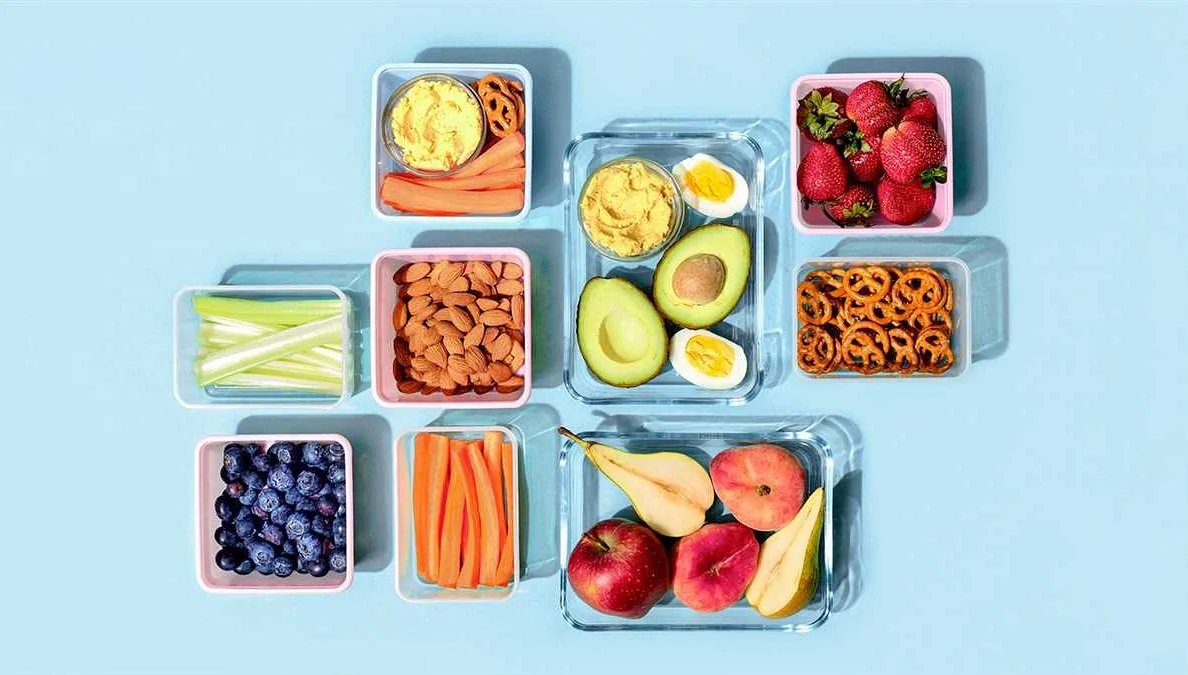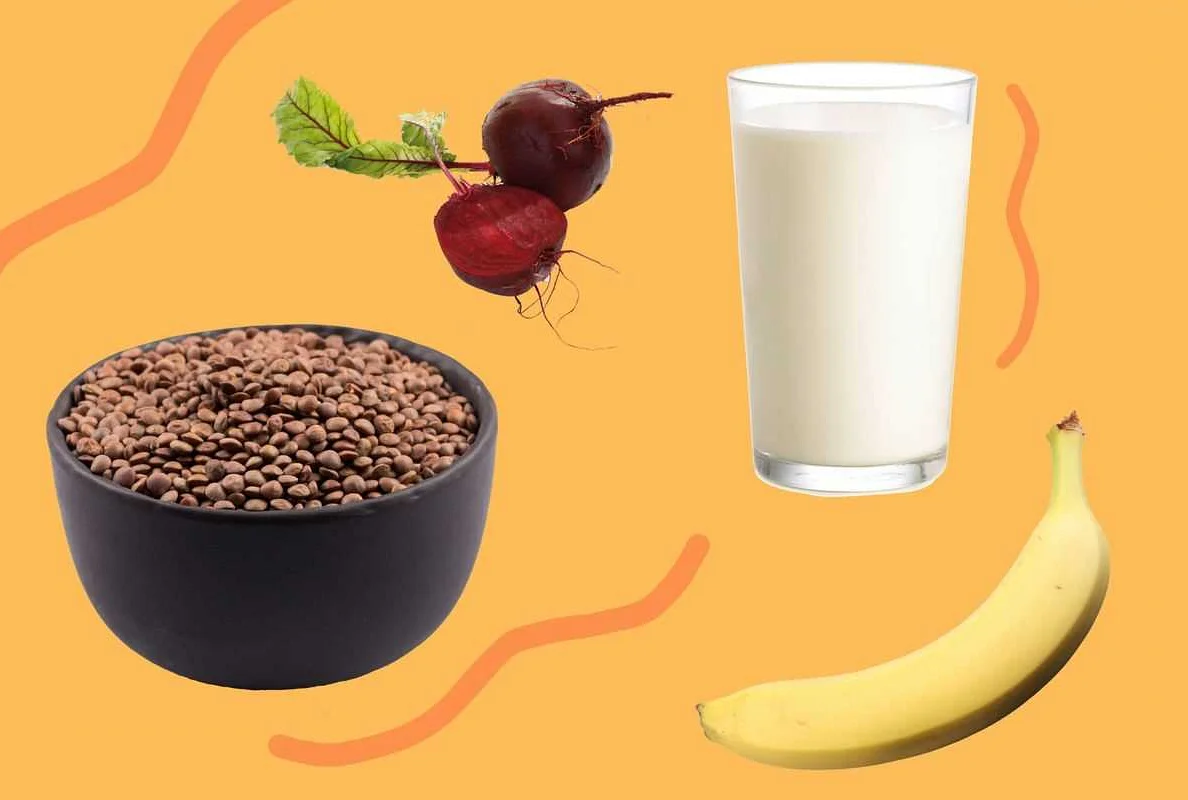No strength even after rest: these 5 foods deprive you of vital energy
Содержимое
Discover the 5 foods that can zap your energy levels, leaving you feeling weak and drained, even after a period of rest. Learn how to avoid these energy-sapping foods and improve your overall vitality and well-being.
We all experience times when we feel exhausted, even after a good night’s sleep and plenty of rest. If you find yourself lacking energy on a regular basis, it may be worth examining your diet. Certain foods can actually deplete your energy levels, leaving you feeling drained and fatigued. In order to maintain optimal energy levels throughout the day, it’s important to be aware of these energy-draining foods and make healthier choices.
One food that can zap your energy is refined sugar. While it may give you a temporary boost, the crash that follows can leave you feeling even more tired than before. Instead of reaching for sugary snacks and drinks, opt for natural sweeteners like honey or fruit. These alternatives provide a more sustained source of energy without the sudden drop.
Caffeine, found in coffee, tea, and some sodas, is another culprit when it comes to draining your energy. While it may give you a temporary jolt, relying on caffeine for energy can disrupt your natural sleep patterns and leave you feeling groggy and irritable. Instead, try swapping your coffee for herbal tea or water, and aim to get a good night’s sleep to naturally boost your energy levels.
Processed foods, such as fast food and pre-packaged meals, are often high in unhealthy fats and low in essential nutrients. These foods can be difficult for your body to digest and can leave you feeling sluggish and drained. Opt for whole, unprocessed foods like fruits, vegetables, and lean proteins to provide your body with the nutrients it needs to function at its best.
Lastly, alcohol can deplete your energy levels by interfering with your sleep patterns and dehydrating your body. While it may help you relax in the short term, excessive alcohol consumption can leave you feeling tired and lethargic the next day. It’s important to drink alcohol in moderation and stay hydrated to maintain your energy levels and overall well-being.
By being mindful of the foods you consume and making healthier choices, you can maintain optimal energy levels throughout the day. Avoiding refined sugar, caffeine, processed foods, and excessive alcohol consumption can help prevent the depletion of your vital energy. Instead, focus on nourishing your body with whole, nutrient-rich foods that will provide sustained energy and support your overall health and well-being.
No Strength Even After Rest
If you find yourself lacking energy even after getting a good amount of rest, it could be because of the foods you are consuming. Certain foods can actually rob you of vital energy, leaving you feeling tired and sluggish throughout the day.
1. Processed Foods: Processed foods are generally high in sugar, unhealthy fats, and artificial additives. These ingredients can cause a spike in blood sugar levels followed by a crash, leaving you feeling fatigued and drained.
2. Sugary Drinks: Sugary drinks like soda and energy drinks may give you a temporary energy boost due to their high sugar content. However, this boost is short-lived and can lead to an energy crash later on. It is best to opt for water or herbal teas for hydration.
3. White Bread and Pasta: White bread and pasta are refined grains that have been stripped of their nutrients and fiber. They are quickly broken down by the body, causing a rapid rise in blood sugar levels followed by a crash. This can leave you feeling tired and lacking energy.
4. Fried Foods: Fried foods are high in unhealthy fats, which can take a toll on your energy levels. These fats are difficult to digest and can leave you feeling heavy and lethargic after consuming them. Opt for healthier cooking methods like baking, grilling, or steaming instead.
5. Alcohol: While alcohol may initially give you a feeling of relaxation, it can actually disrupt your sleep patterns and leave you feeling fatigued the next day. It can also dehydrate your body, further contributing to feelings of tiredness.
To maintain optimal energy levels, it is important to fuel your body with nutrient-dense foods that provide sustained energy throughout the day. Incorporate whole grains, fruits, vegetables, lean proteins, and healthy fats into your diet for a natural energy boost.
Remember, the foods you eat play a crucial role in your overall energy levels. Be mindful of your food choices and opt for nourishing options that support your vitality.
Foods That Deprive You of Vital Energy

While it is important to fuel your body with nutritious foods to maintain energy levels, there are some foods that can actually deprive you of vital energy. These foods may seem tempting or convenient, but they can leave you feeling sluggish and drained throughout the day. It’s best to avoid or limit your consumption of the following:
- Processed Foods: Processed foods, such as fast food, frozen meals, and packaged snacks, are often high in unhealthy fats, added sugars, and sodium. These ingredients can lead to inflammation, weight gain, and energy crashes, leaving you feeling tired and lacking vitality.
- Sugary Drinks: Beverages like soda, energy drinks, and fruit juices are loaded with sugar and artificial additives. While they may give you a temporary energy boost, the high sugar content can cause a rapid spike in blood sugar levels, followed by a crash. This can leave you feeling fatigued and drained.
- Refined Grains: Refined grains, such as white bread, white rice, and pasta, have been stripped of their natural fiber and nutrients during processing. This makes them quickly digested and absorbed by the body, leading to a rapid rise in blood sugar levels and a subsequent energy crash.
- Alcohol: While alcohol may initially give you a buzz, it is a depressant that can negatively affect your energy levels. It can disrupt your sleep patterns, dehydrate your body, and impair your body’s ability to absorb essential nutrients, leaving you feeling fatigued and depleted.
- Highly Processed Meats: Meats that have been heavily processed, such as sausages, hot dogs, and deli meats, often contain high amounts of sodium, unhealthy fats, and preservatives. These ingredients can contribute to inflammation and fatigue, making you feel less energetic throughout the day.
By avoiding or minimizing your intake of these energy-depleting foods, and instead focusing on whole, nutrient-dense foods, you can maintain higher energy levels and feel more vibrant and alive.
The Negative Effects of Processed Foods on Energy Levels

Processed foods are convenient and easy to prepare, but they can have a detrimental effect on our energy levels. These foods are typically high in added sugars, unhealthy fats, and refined grains, which can lead to a quick spike in blood sugar followed by a crash, leaving us feeling tired and lethargic.
One of the main reasons processed foods can zap our energy is their high sugar content. When we consume foods that are high in added sugars, our blood sugar levels can spike rapidly, causing a surge of energy. However, this energy boost is short-lived, as the body quickly releases insulin to bring our blood sugar levels back down. This rapid drop in blood sugar can leave us feeling drained and low in energy.
In addition to their high sugar content, processed foods often contain unhealthy fats, such as trans fats and saturated fats. These fats are known to be more difficult for our bodies to digest and can slow down the absorption of nutrients. As a result, our bodies may not be able to efficiently convert the food we eat into energy, leading to feelings of fatigue and lack of vitality.
Furthermore, processed foods are typically devoid of essential nutrients and fiber. They are often stripped of their natural nutrients during the manufacturing process and replaced with artificial additives and preservatives. These empty calories can provide a temporary energy boost but ultimately leave us feeling depleted and lacking the necessary nutrients our bodies need to function optimally.
Lastly, processed foods are often high in refined grains, which have been stripped of their bran and germ, leaving only the starchy endosperm. These refined grains are quickly broken down by our bodies, causing a rapid rise in blood sugar levels followed by a crash. This rollercoaster effect can leave us feeling drained and craving more processed foods to sustain our energy levels.
In conclusion, while processed foods may be convenient, they can have negative effects on our energy levels. Their high sugar content, unhealthy fats, lack of essential nutrients, and refined grains can lead to a quick energy crash and leave us feeling tired and depleted. It is important to prioritize whole, unprocessed foods in our diet to maintain optimal energy levels and overall health.
How Excess Sugar Leads to Fatigue and Low Energy

Excess sugar intake can wreak havoc on your energy levels and leave you feeling tired and fatigued. When you consume foods that are high in sugar, such as sugary drinks, processed snacks, and desserts, your blood sugar levels spike rapidly. This rapid increase in blood sugar is followed by a sharp drop, leading to a crash in energy levels.
Sugar provides a quick source of energy, but it is not a sustainable fuel for your body. When you consume excessive amounts of sugar, your body releases insulin to help regulate your blood sugar levels. However, if you regularly consume high amounts of sugar, your body can become resistant to insulin, leading to a condition called insulin resistance.
Insulin resistance can disrupt the way your body processes and stores sugar, which can result in chronic fatigue and low energy levels. When your body is unable to properly regulate blood sugar levels, it can lead to fluctuations in energy throughout the day. You may experience sudden bursts of energy followed by crashes, leaving you feeling drained and exhausted.
In addition to causing insulin resistance, excess sugar consumption can also lead to inflammation in the body. Chronic inflammation can contribute to fatigue and low energy levels, as your body has to work harder to combat the inflammation and restore balance.
To maintain stable energy levels and avoid fatigue, it’s important to limit your intake of foods high in sugar. Instead, focus on consuming a balanced diet that includes nutrient-dense foods such as fruits, vegetables, whole grains, and lean proteins. These foods provide slow-release energy and essential nutrients that support overall energy production and vitality.
It’s also important to stay hydrated and properly nourished throughout the day. Skipping meals or relying on sugary snacks can lead to energy crashes and fatigue. Aim to eat regular meals and snacks that include a combination of protein, healthy fats, and carbohydrates to keep your energy levels steady.
By reducing your intake of excess sugar and focusing on a balanced diet, you can help maintain stable energy levels and avoid the fatigue and low energy associated with excessive sugar consumption.